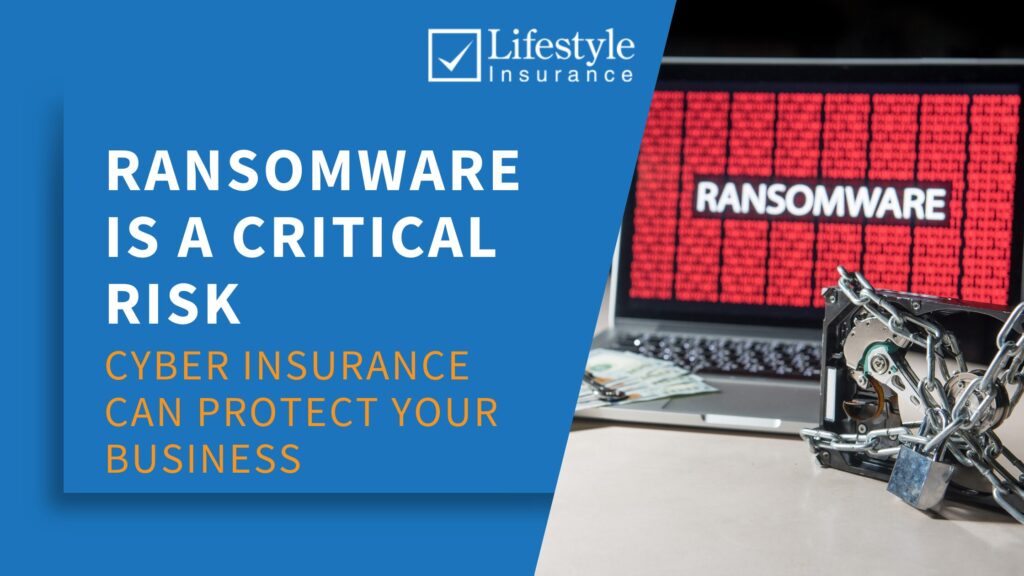The Growing Threat of Ransomware
In today’s digital landscape, businesses face an escalating threat from ransomware attacks, which have become a dominant risk across industries. Ransomware poses a significant threat as it can halt business operations, damage reputations, and result in regulatory penalties for data breaches. In fact, ransomware-related losses are now the leading cause of cyber insurance claims, with the average cost of a data breach reaching a staggering US$4.45 million in 2023. Understanding the importance of cyber insurance and how ransomware works has never been more crucial.
What is an Ransomware Attack?
Ransomware is a type of malicious software designed to block access to a computer system or data until a ransom is paid. Typically, ransomware infects systems through phishing emails containing malicious links or attachments, or through downloads from compromised websites.
Once inside, the ransomware encrypts critical files, making them inaccessible to the business. The perpetrators then demand payment, often in cryptocurrency, for the decryption key.
The impact on businesses can be devastating, leading to significant financial costs, loss of sensitive data, and prolonged operational disruptions. In some cases, even after paying the ransom, companies may not regain access to their data, or they could face additional extortion attempts.
Ransomware Prevention Tips
To effectively reduce the risk of ransomware attacks, businesses should focus on several key prevention strategies.
- Regular Data Backups: Ensure that all critical business data is backed up regularly and stored securely, preferably off-site or in the cloud. This ensures that data can be restored quickly in the event of a ransomware attack.
- Employee Training on Phishing Awareness: Conduct regular training sessions to educate employees about the dangers of phishing emails and the importance of not clicking on suspicious links or attachments. This helps prevent one of the most common methods of ransomware infection.
- Implement Robust Cybersecurity Software: Use advanced cybersecurity solutions such as firewalls, intrusion detection systems, and antivirus software to detect and neutralize threats before they can cause harm.
- Keep Systems and Software Updated: Regularly update all operating systems and software applications to patch security vulnerabilities. Enable automatic updates where possible to ensure timely protection against new threats.
- Use Strong Passwords and Multi-Factor Authentication: Enforce the use of strong, unique passwords and implement multi-factor authentication (MFA) for accessing sensitive systems and data. This adds an extra layer of security, making it more difficult for unauthorized users to gain access.
- Restrict Access to Sensitive Data: Limit access to critical data and systems to only those employees who need it for their roles. Implement role-based access controls and regularly review user permissions.
- Develop a Comprehensive Cybersecurity Strategy: Create a detailed cybersecurity plan that includes regular risk assessments, incident response protocols, and continuous monitoring of network activity to quickly identify and respond to potential threats.
By adopting these ransomware prevention strategies, businesses can significantly reduce their risk of falling victim to an attack and protect their valuable assets. Read our short Cyber Attack Response Strategy.
Understanding Cyber Insurance
Cyber insurance is designed to protect businesses from internet-based risks and more generally from risks relating to information technology infrastructure and activities. This form of insurance covers expenses related to data breaches, including recovery, legal liabilities, and the costs associated with the notification of affected parties. By transferring some of the financial risks associated with cyber threats to an insurance provider, companies can safeguard their financial health and ensure continuity even in the face of significant cyber incidents.
The Risks of Operating Without Cyber Insurance
Without adequate cyber insurance, companies expose themselves to substantial financial risks. Not only can ransomware attacks result in direct financial losses, but they can also cause prolonged business interruptions, damage an organization’s reputation, and result in legal penalties. The financial burden of recovering data, restoring systems, and addressing legal ramifications can be overwhelming for companies that are unprepared.
Case Studies Highlighting the Importance of Cyber Insurance
To illustrate the necessity of cyber insurance, let’s look at some recent high-profile ransomware cases:
- Colonial Pipeline: In 2021, the Colonial Pipeline Company suffered a ransomware attack that led to widespread fuel shortages along the East Coast of the United States. The company reportedly paid a $4.4 million ransom to regain access to its systems. The incident highlighted the critical impact of ransomware on operational capabilities and the importance of having financial safeguards in place.
- JBS Foods: The world’s largest meat processing company, JBS Foods, fell victim to a ransomware attack that temporarily shut down its operations in the United States, Canada, and Australia. The company paid $11 million in ransom, underscoring the potential financial devastation of such attacks and the need for insurance that can mitigate these costs.
- Travelex: The foreign currency exchange provider Travelex was hit by a ransomware attack that demanded $6 million. The attack disrupted services for weeks, severely impacting operations and leading to significant losses. Travelex’s situation serves as a cautionary tale for businesses about the dire consequences of being inadequately prepared.
Cyber Insurance is a Must
The sophistication and frequency of ransomware attacks are expected to rise. Cybercriminals are continuously evolving their tactics, making it critical for businesses to have robust risk management strategies in place. Cyber insurance not only provides financial protection but also access to resources and expertise that can help companies respond effectively to cyber incidents.
For general managers and decision-makers in Hong Kong, now is the time to evaluate your company’s cyber risk profile and consider the benefits of cyber insurance. Protecting your business from the growing threat of ransomware is not just a strategic move—it’s a necessity in today’s digital economy. Don’t wait until your company becomes another statistic; take proactive steps to secure your digital assets with comprehensive cyber insurance coverage.
Contact Lifestyle Insurance today!


